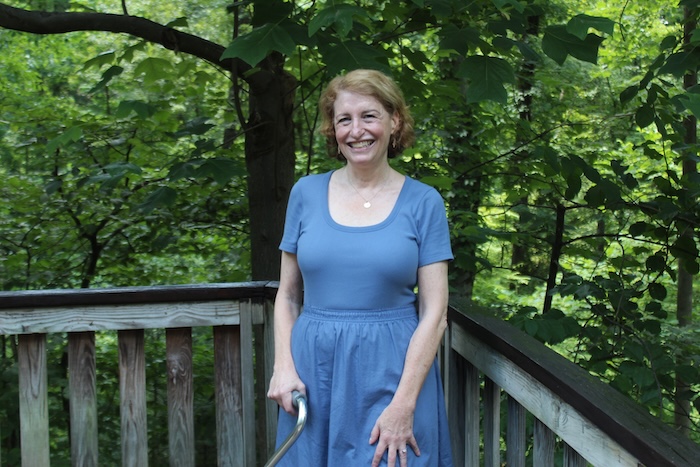Millions expected to lose coverage
In addition to love, health insurance pushed Catherine Lisotta and her husband to marry.
The Garrison resident’s job in the magazine industry offered coverage after he lost his job. When Lisotta got laid off, the couple turned to New York’s health exchange, an insurance marketplace where people without access to coverage from employers, and incomes too high for public insurance, can enroll in a private plan using tax credits that lower premium costs.
She never considered going without health coverage. “It would worry me too much,” said Lisotta, whose insurance is covering a recent hip replacement that would have cost her over $20,000. “It would be like tempting God.”

Lisotta and other people using exchanges in New York and other states are now facing changes to health care that are estimated to raise the number of uninsured people by 12 million. Those proposals, embedded in U.S. House and Senate versions of the One Big Beautiful Bill, will cost 7.8 million people coverage through Medicaid, according to the Congressional Budget Office
The bill was narrowly passed in the House on Thursday (July 3) after passing the Senate on Tuesday (July 1). President Trump signed it on Friday (July 4). New York’s two Democratic senators — Chuck Schumer and Kirsten Gillibrand, voted against the legislation, as did Rep. Pat Ryan, a House Democrat representing the 18th Congressional District, which includes Beacon. Rep. Mike Lawler, a Republican who represents the 17th District, which includes Philipstown, voted for the legislation.
New York State predicts that 1.5 million statewide will lose insurance, including 38,400 in the 18th District and 31,200 in the 17th District. The bill’s provisions would also affect the health care exchanges in New York and other states established when President Barack Obama signed the Affordable Care Act in 2010.
Among the changes, people will have to verify their eligibility before enrolling instead of being allowed temporary conditional eligibility. The bill also changes a provision that allows any immigrant who is legally in the country to be eligible for coverage and subsidies through the exchanges, largely limiting that benefit to green-card holders and barring enrollment for refugees and people seeking asylum.
There is also concern that Congress will not extend the more-robust tax credits, and expanded eligibility, approved under the administration of President Joe Biden and expiring at the end of the year. Letting them expire would cost 4.2 million people insurance, according to the CBO. Premiums could more than double in both Lawler and Ryan’s districts without the extension, according to KFF, a health policy organization.
Christine Ortiz, who owns Oh! Designs Interiors in Cold Spring, is among the insured who has been receiving text messages from the state warning that “federal rules may change your health insurance.” She not only uses the exchange, but so do a son and daughter. One of them is also self-employed.
“The only reason that we can be self-employed is because of health care,” she said. “I have a studio in the village, trying to build my business, and having to not have to worry about health insurance has been such a blessing.”
Sun River Health, whose 40 locations include one in Beacon, estimates that 20,000 of its patients will lose Medicaid, said Ernest Klepeis, its chief of government affairs and advocacy.
As the OBBB has worked its way through Congress, Klepeis has been urging senators and representatives to reject the Medicaid cuts, which include stronger work requirements for childless adults between 19 and 64, and a new requirement that recipients recertify their eligibility every six months instead of yearly.
While Republicans say that the changes will only impact people who refuse to work, advocates say that most of the people who lost coverage from more stringent work requirements imposed in Arkansas and Georgia were actually eligible for Medicaid.
“Specifically for work requirements or recertification requirements, you are putting up red tape and barriers for patients who are otherwise eligible to access these services,” said Klepeis.
One of Sun River’s patients is Perry Iannaconi Jr., a Beacon resident diagnosed with HIV in 1983. Iannaconi is sure he would be dead without Medicaid coverage.
“It’s helped me survive all these years,” he said. “It’s given me the opportunity to have interactions with my doctor and my therapist, and it has given me access to prescription drugs and dental care.”
The health exchanges have also been a lifeline, especially for local business owners, consultants and freelancers. KFF estimated last year that the extra tax credits cut monthly premiums through state health exchanges by 44 percent.
Alka Bhatt, a Beacon resident, started a freelance healthcare consulting business four years ago and had previously purchased coverage through the exchange in West Virginia before moving to New York state.
“I grew up with a childhood chronic illness, so I like to have health insurance I can actually use,” she said. “It’s not just access to providers, but also affordability, as much as you can manage that in today’s day and age.”
In addition to the expiration of the beefier tax credits, Bhatt is concerned about the proposed changes to the open enrollment period and expanded documentation requirements.
“I worry that those hurdles are going to become inhibitors to even getting the insurance,” she said.

